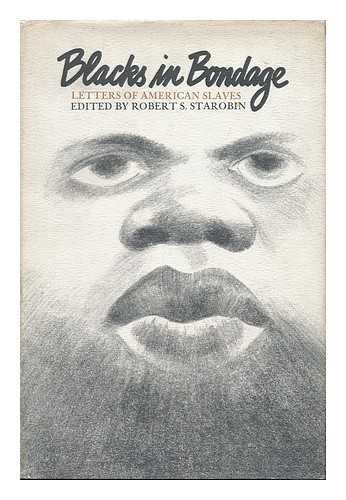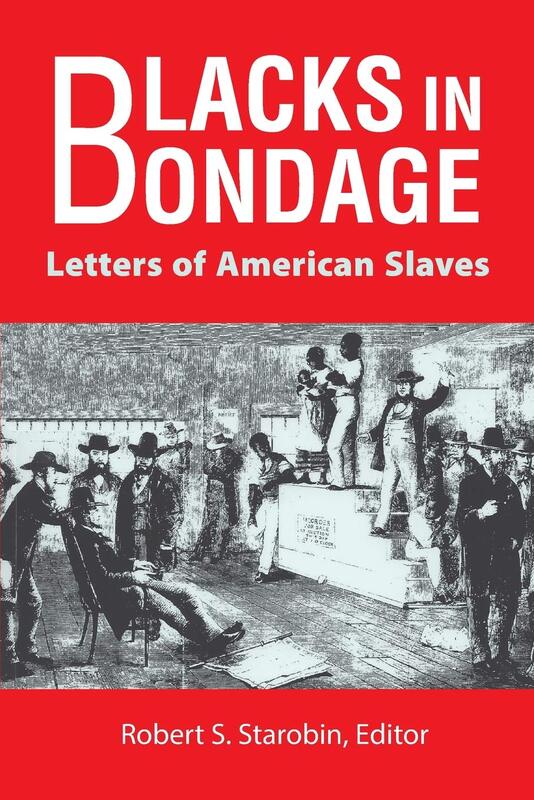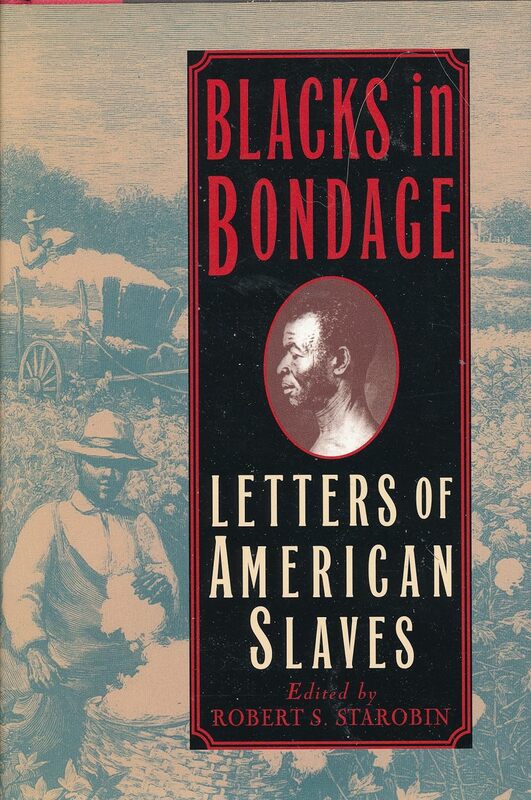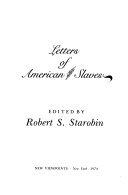Blacks in Bondage: Letters of American Slaves
Item
-
Title
-
Blacks in Bondage: Letters of American Slaves
-
This edition
-
"Blacks in Bondage: Letters of American Slaves". Ed. Robert S. Starobin. New York: New Viewpoints, 1974. xviii+196 pp.
-
Other editions, reprints, and translations
-
Repr. With new foreword by Ira Berlin. New York: M. Wiener, 1988, 1994. xxiv+196 pp.
-
Repr. New York: Barnes & Noble Books, 1998. xxiv+196 pp.
-
Table of contents
-
Pt 1. The Black Elite Report on Slave Life. 1. Drivers and Managers -- 2. House Servants -- 3. Artisans and Hirelings -- Pt 2. Protest, Escape and Rebellion. 4. To Make Free -- 5. Escape to Freedom -- 6. Rebellion -- Pt 3. After Slavery. 7. The Fugitives -- 8. Back to Africa -- 9. Letters from Liberians
-
About the anthology
-
"The 1974 original publication of Blacks in Bondage: Letters of American Slaves marked a watershed in slavery studies. Before it appeared, historians were resigned to studying American slavery mainly through the testimony of white and the distant recollections of blacks who had been free for many years. It took this compilation of documents, gathered by Robert S. Starobin, to convince historians that it was possible to study American slavery from the perspective of blacks living under it or only recently freed. The letters show that, in spite of legal and practical obstacles, many slaves managed to become literate or else desired to, and that slaves given greater autonomy or the hope of freedom always worked more diligently. The spirit of protest is amply evidenced: Included in the collection are depositions of members of the Gabriel Conspiracy of 1800, a plane for a large-scale slave revolt, which was betrayed from within. The letters are grouped according to the status of their authors at the time of composition, for example, slaves seeking to gain their freedom, fugitives, and freedmen living in Liberia. Starobin's commentaries give the writers' backgrounds and guide the reader in interpreting the texts, many of which conceal subtexts full of mockery and defiance" (1994 publisher's description).
-
Reviews and notices of anthology
-
Osborne, Gwendolyn E. "The Crisis" 82.9 (Nov. 1975): 368. [Google Books]
""Much has been written about slavery in the United States--by historians, sociologists and scholars. Most of these works have been written from a white perspective, relying primarily on documents of slave masters and overseers.
"Obviously, the millions of blacks held in bondage from 1620 to 1863 must have articulated 'some' reaction to his situation worthy of note. It has been noted historically that the black man's history during this period survived through the preservation of the African oral tradition of communication since the education of slaves was not permitted by the dominant culture in any appreciable number.
"Dr. Robert S. Starobin, professor of history at the State University of New York, has compiled an impressive collection of documents written or transmitted by slaves themselves.
"'Blacks in Bondage' reflects the nature of the caste system which separated the house servant from the field hand, the tragedy of broken families after a slave auction and the promise and dreams of freedom through slave revolts, escape or migration to Liberia.
"Dr. Starobin, who has authored other books dealing with slavery, ('Industrial Slavery in the Old South' and 'Denmark Vessey: The Slave Conspiracy of 1822') has carefully preserved the integrity of these documents by keeping the original spelling and punctuation intact. Wherever words are illegible or missing, the manuscript is so noted" (368).
-
Google Books
-
Item Number
-
A0610







